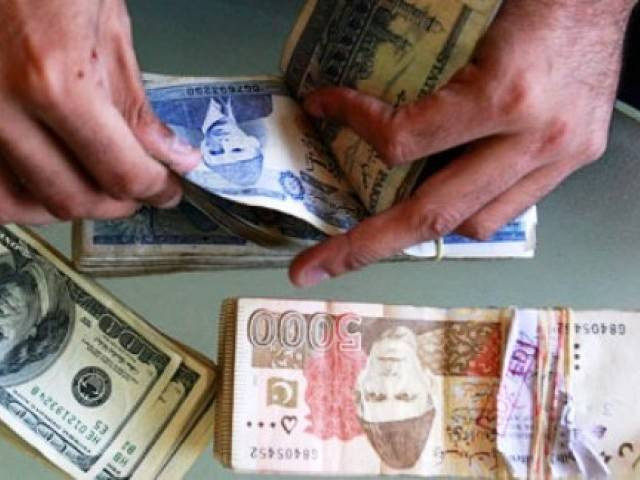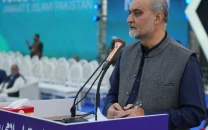Govt again allows use of cheques for business transactions
Suspends digital mode payment requirement for 40 days

The government on Sunday again allowed businesses to use banking cheques for making payments of over Rs250,000 after disbanding their use just two days ago, underscoring its lack of preparedness before enforcing a radical change to broaden tax base.
The Federal Board of Revenue (FBR) on Sunday announced to suspend the two-day old new compulsory legal requirement of making over Rs250,000 business-related payments only through digital mode.
The mandatory legal requirement has initially been suspended for 40 days, as neither the business community nor the banking system is prepared to deal with this.
The compulsory digital payment requirement had been enforced through a presidential ordinance instead of bringing the bill to parliament for a debate and collective decision making.
“FBR is considering allowing the corporate taxpayers a grace period of 40 days to switch over to the digital mode of payments effective November 1, 2021 under Tax Laws (3rd Amendment) Ordinance, 2021,” according to a statement.
Read Govt makes heavy interest payments
A formal notification to put the compulsory requirement on hold is expected to be issued on Monday (today) after legal vetting, according to the sources.
Had the FBR not suspended its ill-timed decision, the businesses would have come to a halt from Monday due to this requirement. The cash or cheque payment would have been treated as income instead of expenditure, had the FBR not suspended its decision.
The revenue board stated that the Tax Laws (third Amendment) Ordinance, 2021 has introduced significant changes to the Income Tax ordinance, 2001 with a view to documentation of the economy, capture the supply chains, and broaden the tax base.
The FBR noted that owing to lack of digital readiness by some corporate taxpayers immediately, it was considering to allow the corporate taxpayers a grace period of 40 days to switch over to the digital mode of payments effective November 1, 2021.
It said that in the intervening period they may use the traditional banking transaction methods including cross cheques, cross bank drafts, cross pay orders, or any other crossed banking instrument showing transfer of amount from the business bank account of the taxpayer in addition to digital mode of payment as long as those are compliant with the law.
The Clause (la) in section 21 had been inserted in the presidential ordinance, making it mandatory for companies to make payments on expenditures exceeding Rs250,000 through digital mode only, according to the FBR.
The revenue board’s decision to move towards digitisation of economy is a step in right direction but like many other good decisions it had been taken in haste and without proper consultations.
The Express Tribune, on August 27 had highlighted this issue and wrote “the government has decided to enforce digital mode of payments without first plugging loopholes that led to creation of black money like difference between market value and FBR values of properties, agriculture income tax exemption and tax-free foreign remittances”.
Earlier, the government had announced compulsory requirement of producing CNIC on every Rs50,000 transaction that also met with the same fate.
The FBR decided to suspend the digital payment clause 10 days before the trading community’s call to hold protest rally in front of FBR headquarters on September 29 against its drive to integrate businesses with its tax system.
While explaining the reason behind introducing digital payment, the FBR said that currently grey transactions (hiding/suppressing sales invoices and un-reconciled payments through open/revolving cheque or cash) are highly prevalent in business value chains. Almost 99% of all business transactions are on cash/cheque, it added.
Read more FTO directs FBR to review 103 tax credit claims
Moreover, third party payments are also highly prevalent in organised and informal sector whereby businesses do not use their own bank accounts when making payment for supplies and tell their own customers/transaction based informal-investors to make direct payments to the principle supplier.
The FBR said that such practices are “highly prevalent in supply chains and has become an accepted norm”. The cross cheques create financial inefficiency due to clearing period of 1-3 days.
Similarly, cross cheques/open cheques do not carry the “purpose” of the payment or its relationship with the invoice.
“Despite many attempts to increase documentation of supply chains such as withholding tax and further tax, the number of unregistered distributors and retailers remains high whereby sales are suppressed and due income tax is completely avoided”.
In its handout, the FBR did not mention about corrupt practices and the reversal of polices that also contribute to keeping the businesses away from the tax system.
Under the law, the FBR was authorised to open only five years old tax cases. But through the same ordinance, the FBR has created a room to go as back as 20 years to scrutinise the tax record of the people.
The FBR is also engaging SBP to issue necessary instructions to operationalise this important provision of law as well as encourage the banking sector to facilitate the corporate businesses to accomplish digitisation within the stipulated timeframe, the revenue board said.



















COMMENTS
Comments are moderated and generally will be posted if they are on-topic and not abusive.
For more information, please see our Comments FAQ